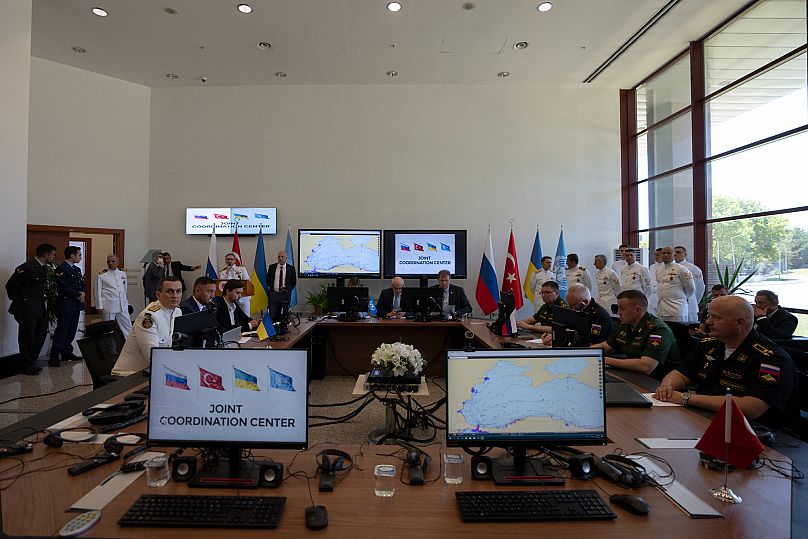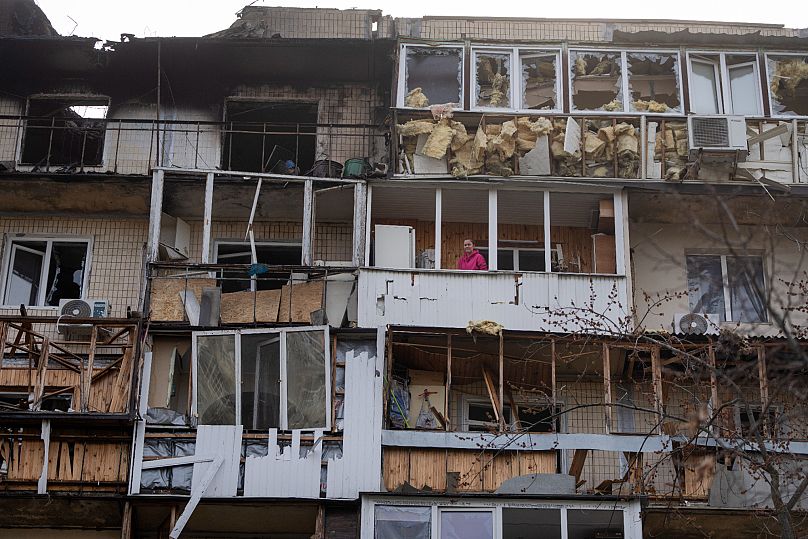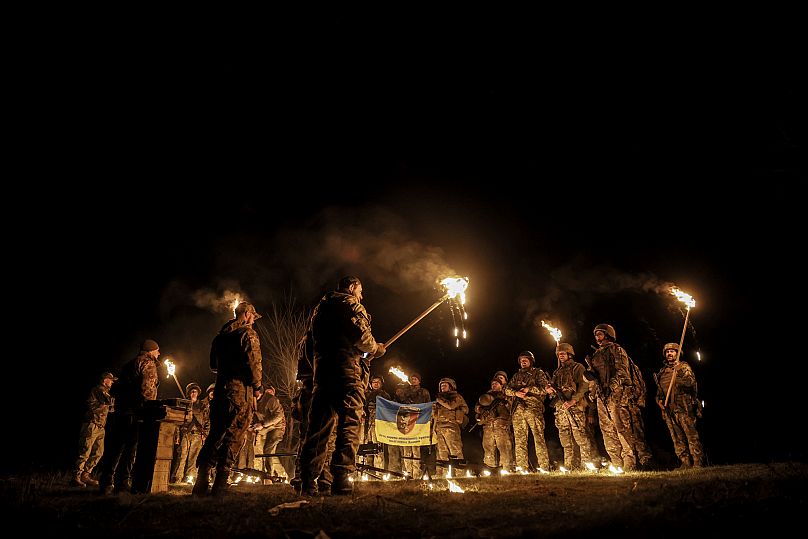The United States has reported that Ukraine and Russia have reached an agreement for a truce in the Black Sea region.
On Tuesday, the White House issued two distinct statements indicating that both Kyiv and Moscow have concurred to guarantee safe passage, refrain from using force, and prohibit the utilization of merchant ships for military activities within the Black Sea region.
This development follows three days of discussions between the US and the two rival nations in Riyadh, the capital of Saudi Arabia.
There were no direct discussions involving both Ukrainian and Russian representatives at these gatherings.
The nearly indistinguishable statements from the White House regarding Russia and Ukraine indicated that both nations concurred with developing measures to prohibit attacks on energy infrastructure.
The Trump administration subsequently emphasized that "the violence on both sides... needs to end."
The wording of both statements was essentially the same, with one exception: a part stating that the US was dedicated to assisting Ukraine in achieving the exchange of POWs, freeing civilians who were detained, and returning Ukrainian children who had been forcefully moved.
Within the corresponding segment of the Russian version, Washington's commitments entailed a pledge to assist in reinstating Moscow’s ability to participate in the global markets for agricultural products and fertilizer exports.
Rustem Umerov, Ukraine's defense secretary, turned to X on Tuesday afternoon to elucidate Kyiv's stance on the Black Sea situation.
The Ukrainian authorities stress that any deployment by Russia of its military ships beyond the eastern region of the Black Sea would be considered a breach of the accord’s underlying principles. It would also be seen as an infringement upon the pledge to maintain secure passage through the Black Sea and poses a risk to Ukraine’s national security, he stated.
"In this case Ukraine will have full right to exercise right to self-defence," he added.
In the meantime, the Kremlin issued its own statement asserting that the Black Sea accord would take effect solely following the removal of certain Western-imposed limitations.
{getCard} $type={post} $title={You might like}
This encompassed lifting restrictions on Rosselkhozbank and other financial institutions engaged in global trade of food items and fertilizers, according to Moscow.
Queries have arisen regarding the importance of Tuesday’s agreement. Since the onset of its comprehensive assault on Ukraine, Russia has not maintained any significant military presence in the Black Sea region. Meanwhile, the Romanian route has ensured secure transit for commercial vessels.
The Ukrainian navy reports that out of the initial 80 Russian warships present in the Black Sea prior to the invasion, at least 27 have been damaged or obliterated since early 2022. Approximately 15 ships are reportedly recoverable and currently under repair as of spring 2024.
Various understandings of what a ceasefire entails
The Trump administration has found it difficult to have both parties agree to a restricted, 30-day truce.
Last week, both Kyiv and Moscow initially endorsed that proposal, yet subsequently, they have kept up their assaults on one another using drones and missiles.
Russia and Ukraine have presented different views on what a potential partial truce might entail and have clashed over which types of targets should be covered during a cessation of hostilities.
Although the White House indicated that a partial truce should encompass ceasing assaults on "energy and infrastructure," the Kremlin stated that the accord specifically pertained to "energy infrastructure" alone.
The Russian delegation stated that they extensively talked with U.S. officials about the potential for secure maritime traffic in the Black Sea.
Moscow stated that it is willing to resume "in some form agreeable to all parties" the 2022 agreement permitting Ukraine to transport grain via the Black Sea to nations in Africa, the Middle East, and Asia. In these regions, rising hunger poses a significant risk, and soaring food costs have led to increased levels of poverty.
The significant Black Sea Grain agreement was facilitated by the UN and Turkey during the summer of 2022. Moscow ceased participation the subsequent year Stating that its requirements for getting Russian food and fertilizer distributed globally were not being fulfilled, leading to the collapse of the agreement.



